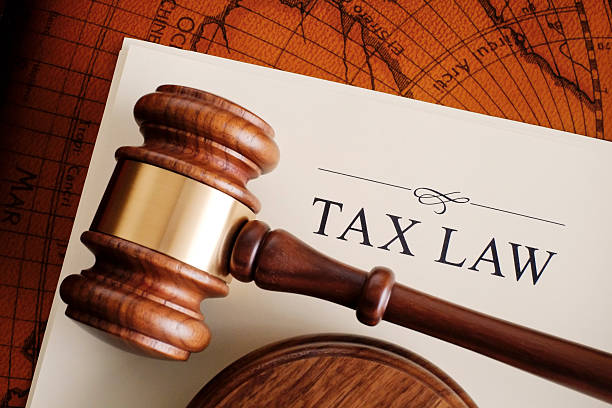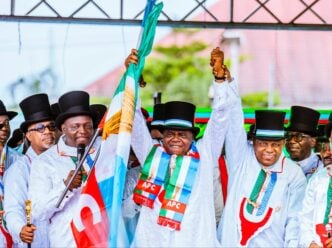From January 1, 2026, the federal government will begin implementing new tax laws that provide 50 exemptions and reliefs targeting low-income earners, average taxpayers, and small businesses.
President Bola Tinubu signed the four tax reform bills into law on June 26.
The laws are the Nigeria Tax Act, 2025 (NTA), the Nigeria Tax Administration Act, 2025 (NTAA), the Nigeria Revenue Service (establishment) Act, 2025 (NRSEA), and the Joint Revenue Board (establishment) Act, 2025 (JRBEA).
According to Wale Edun, minister of finance and coordinating minister of the economy, the new tax laws will improve business growth and boost the purchasing power of Nigerians.
Advertisement
In a post on X on Monday, Taiwo Oyedele, chairman of the presidential committee on fiscal policy and tax reforms, said the 50 tax exemptions and reliefs will benefit Nigerians under the new tax regime.
“From 1 January 2026, the new tax laws will provide many reliefs and exemptions for low-income earners, average taxpayers, and small businesses,” Oyedele said.
Here is a full list of the exemptions and reliefs
Advertisement
PERSONAL INCOME TAX (𝐏𝐀𝐘𝐄)
1. Individuals earning the national minimum wage or less (exempt)
2. Annual gross income up to N1,200,000 (about N800,000 taxable income) is exempted.
3. Reduced PAYE tax for those earning N20 million annually
Advertisement
4. Gifts (exempt)
ALLOWABLE DEDUCTIONS AND RELIEFS FOR INDIVIDUALS
5. Pension contribution to pension fund administrators (PFA)
6. National health insurance scheme
Advertisement
7. National housing fund (NHF) contributions
8. Interest on loans for owner-occupied residential housing
Advertisement
9. Life insurance or annuity premiums
10. Rent relief – 20 percent of annual rent (up to N500,000)
Advertisement
PENSIONS AND GRATUITIES
11. Pension funds and assets under the Pension Reform Act (PRA).
Advertisement
12. Pension, gratuity or any retirement benefits granted in line with the PRA
13. Compensation for loss of employment up to N50 million
CAPITAL GAINS TAX
14. Sale of an owner-occupied house
15. Personal effects or chattels worth up to N5 million
16. Sale of up to two private vehicles per year
17. Gains on shares below N150 million per year or gains up to N10 million
18. Gains on shares above exemption threshold if the proceed is reinvested
19. Pension funds, charities, and religious institutions (non-commercial)
COMPANIES INCOME TAX
20. Small companies (turnover not more than N100 million and fixed assets not more than N250 million) pay zero percent tax
21. Eligible (labelled) startups
22. Compensation relief: 50 percent additional deduction for salary increases, wage awards, or transport subsidies for low-income workers
23. Employment relief: 50 percent deduction for salaries of new employees hired and retained for at least three years.
24. Five-year tax holiday for agricultural businesses (crop production, livestock, dairy, etc.)
25. Gains from investment in labelled startups by venture capitalist, private equity fund, accelerators or incubators.
DEVELOPMENT LEVY
26. Small companies are exempted from 4 percent development levy
𝐖ITHHOLDING TAX
27. Small companies, manufacturers and agricultural businesses are exempted from withholding tax deduction on income
28. Small companies are exempt from deduction on payments to suppliers
𝐕ALUE ADDED TAX (𝐕𝐀𝐓) – (0% OR EXEMPT)
29. Basic food items – zero percent VAT
30. Rent – exempt
31. Education services and materials – zero percent VAT
32. Health and medical services
33. Pharmaceutical products – zero percent VAT
34. Small companies (less than N100m turnover) – exempt from charging VAT
35. Diesel, petrol, and solar power equipment – VAT suspended or exempted
36. Refund of VAT on assets and overheads used to produce VATable or zero percent VAT goods and services.
37. Agricultural inputs – fertilisers, seeds, seedlings, feeds, and live animals
38. Purchase, lease or hire of agricultural equipment
39. Disability aids – hearing aids, wheelchairs, braille materials
40. Transport – shared passenger road transport (non-charter)
41. Electric vehicles and parts – exempt
42. Humanitarian supplies – exempt
43. Baby products
44. Sanitary towels, pads or tampons
45. Land and building
𝐒TAMP DUTIES (e𝐱𝐞𝐦𝐩𝐭)
46. Electronic money transfers below N10,000
47. Salary payments
48. Intra-bank transfers
49. Transfers of government securities or shares
50. Documents for transfer of stocks and shares
INFLUENCERS TO BE TRAINED ON ACCURATE TAX EDUCATION
Oyedele also urged Nigerians to nominate content creators who have been educating their audiences about the country’s new tax reform laws or those they believe should take up the role.
He said the top 20 creators with the highest number of nominations will be selected for a special training designed to help them share accurate, balanced, and useful tax information with their followers.
“Misinformation spreads fast, often to the author’s benefit but to the audience’s loss. Accurate information may travel slower, but it empowers everyone, and earns lasting trust,” he said.
The fiscal policy chairman said nominations can be made by tagging or mentioning preferred influencers or by filling out the nomination form at forms.gle/15kyv1ffx7tzTL, adding that the process closes on November 9, 2025.











